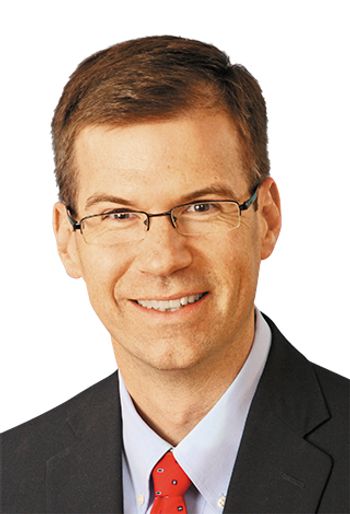
Principles: What to do in the era of mergers and mega groups?
"As regional players such as the local university and national entities such as Mayo and Cleveland Clinic continue to expand, we are faced with the decision to sell out to a local hospital, radically expanding our own footprint with the goal of creating a mega group or joining forces with a larger, already-established urology group," writes urologist Henry Rosevear, MD.
Dr. Rosevear is a urologist in community practice in Colorado Springs, CO. Urology Times blogs present opinions, advice, and news from urologists and other urology professionals. Opinions expressed by bloggers are their own, and do not necessarily reflect the views of Urology Times or its parent company, UBM Medica.
I’ll concede that the vast majority of what I read on a daily basis is either directly urology related (the Journal of Urology or Urology Times) or a children’s book (“Don’t Let the Pigeon Drive the Bus,” by Mo Willems). Even though I truly love reading, finding time to do it for the pure enjoyment is challenging. Recently though, a mentor and friend loaned me a book that I found so compelling, so worth reading, and so relevant to the current business climate in urology that I had to share it with everyone.
“Principles,” written by Ray Dalio, a hedge fund manager at Bridgewater Associates, is divided into three parts. Each of the sections is almost a stand-alone book, though when read together they truly convey the author’s point of view. The first section talks about the importance of having principles in general, whatever they may be. The second discusses Dalio’s personal principles, and the last section talks about how he uses those principles in his work as a manager.
The author himself best summarized the book when he said it tells people to: 1) decide what you want, 2) decide what is true, and 3) decide what to do about it.
Also by Dr. Rosevear:
The business of urology continues to change. The number of practitioners in solo practice is declining (just look at the recent AUA Census data), and the number of small- and medium-sized groups joining forces to create larger groups is increasing. Further, the number of young urologists signing on as employees either of hospitals or of multispecialty groups continues to increase.
My life mirrors this trend. My original small group of five urology recently merged with a larger seven-man group and has since expanded into a 14-person strong group. No one is going to confuse us for a mega group, but we like to think we provide our patients with state-of-the-art care while still maintaining our clinical independence. We, like most groups our size, are considering our future as a business and actively looking at our options.
Next:
What are our options? As regional players such as the local university and national entities such as Mayo and Cleveland Clinic continue to expand, we are faced with the decision to sell out to a local hospital, radically expanding our own footprint with the goal of creating a mega group or joining forces with a larger, already-established urology group.
For our situation, Dalio’s advice about deciding what you want, what is true, and what to do about it seems apropos.
Read:
What do I want? Do I join a hospital, become a cog in the wheel, and spend my evenings on committees fighting for the resources to help my patients with little hope of ever having any true say in how my clinic is run? Do I expand my own practice and spend my evenings trying to run an ever-expanding group of urologists as we build out our own infrastructure to provide the full range of urologic services? Or do I join a national mega urology group that has access to capital and the management team already in place to allow me to expand fully at the cost of some degree of lost independence?
What is true? Hospitals are not doctors’ friends, and urology is a small line item for the majority of hospitals. Given those statements, I fear for the long-term stability (both from a financial and job satisfaction standpoint) of a hospital-employed position. If you think hospital-employed physicians have the same job satisfaction level as independent urologists, just read this
Further the financial risks of that model are exceptional, especially in the current economic environment. Being a founding member of a mega group certainly would maximize independence and guarantee me a seat at the table when major decisions are made, but that independence comes at a hefty price.
And what about those already-established mega groups that are now starting to expand their footprint nationally? They can certainly brag about their historical success but, as any financial adviser will tell you, past performance is no guarantee of future success. Most are backed by large private equity or venture capital groups providing ready access to a near-infinite pool of money.
Further, they have a system in place with true business teams in place, including the managerial skill that I lack, but what is their motivation? Why are they doing it? Can I assume they have a true desire to provide cutting-edge personalized health care, or is it all about the bottom line? And how much say will one doctor, or one 14-person division of doctors, have in a huge company?
What to do about it? I don’t know. Dalio was undoubtedly correct that, before making the decision concerning what to do, you need to take the time to define what you want and then approach the problem with an open mind about what is true. But the question remains, and it is the same question that hundreds of other small- to mid-sized urology groups across the country are debating right now: What do we do about it?
Newsletter
Stay current with the latest urology news and practice-changing insights — sign up now for the essential updates every urologist needs.





